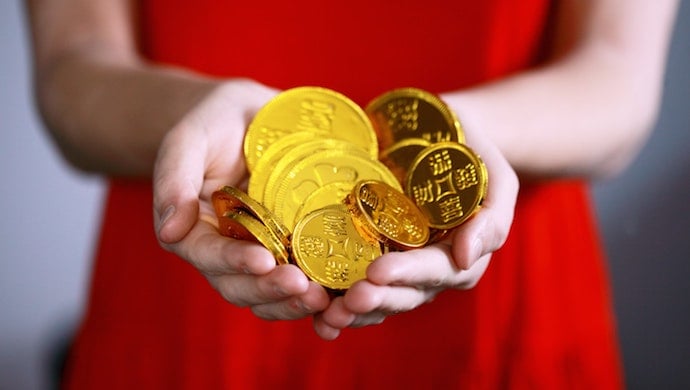
Southeast Asia is home to one of the fastest rates of digital payments adoption —which is forecast to grow to more than US$1 trillion by 2025.
Reinforced by an internet economy of 400 million users and almost two-thirds of consumers in Southeast Asia choosing card over cash, it is no surprise that digital payments have become an accustomed part of everyday lives.
As the region’s digital economy continues to surge, it is a natural progression that traditional stores of value such as gold are receiving the digital treatment.
While the demand for gold has been on a one per cent year-on-year rise globally, gold consumption in the 10 ASEAN countries reached 309 tonnes in 2018, making it the third-largest market for gold globally.
In Southeast Asia, Indonesia, Thailand, and Vietnam together accounted for over 80 per cent of the region’s gold market. With a rich cultural and traditional importance in Asia, gold holds an important role in customary traditions such as weddings or baby showers —where gold jewellery, bullion, and coins are prized possessions that are handed down for generations as a symbol of wealth and prosperity.
The combination of rapid digital adoption and the cultural importance of gold in Southeast Asia makes the region a prime location for users to drive and pioneer the adoption of digital gold—enabling consumers to reap the enduring benefits of gold with the convenience and speed of digital payment.
Also Read: 4 ways you can capitalise on the food tech gold rush in Asia
Going digital simplifies the process of purchasing gold for mainstream consumers, as it removes the need to worry about high premiums, insurance, or safe-keeping of their gold. As a result, Gojek is also catching on to this trend and is now offering an online gold investment feature.
Governments across Southeast Asia have also played a crucial role to help emerging financial innovations, such as digital gold, to excel and thrive in the region. This is a result of progressive regulations and a favourable technological infrastructure—cultivating the growth of emerging technologies and digital innovation.
As a result, countries such as Singapore have experienced more than S$1.2 billion (US$875 million) in fintech investments in 2019, more than double the investments from the year before, further showcasing the region’s potential and growth. Understanding that digitisation is crucial to future-proof the region’s economy, governments in Southeast Asia have further legitimised new technologies through grants, funding, and piloting proof of concepts—fostering greater acceptance as users understand the benefits such technologies will bring them.
Despite the COVID-19 pandemic, governments across Southeast Asia remain committed to the acceleration in technology development and adoption—further driving cashless initiatives to reduce physical contact in an effort to help flatten the curve and limit the spread of the virus.
The Singapore Government allocated SG$500 million (US$364 million) to boost e-payment adoption and neighbouring Malaysian Government assigned a digital stimulus to accelerate the adoption of e-wallets, providing all eligible Malaysians a one-off MYR30 (US$7) incentive to spend via selected service providers Boost, GrabPay, and Touch ‘n Go eWallet.
As a result, countries across Southeast Asia are seeing an uptake in digital payments adoption—as Singapore’s Deputy Prime Minister Heng Swee Keat announced that more than 50,000 businesses have adopted Paynow Corporate since April 2020, and GrabPay Malaysia reported a 1.7-time increase in cashless transactions.
While digital payments were seen as a convenience prior to the pandemic, they are now a critical factor in the “new normal” and will be a driving force for innovation within the region—sparking the growth of emerging technologies such as digital gold which places a traditional, physical asset within the digital realm.
However, anything placed in the digital realm is open to cyberattacks which have prompted businesses and authorities to explore blockchain technology due to it’s secure, transparent, and immutable characteristics.
Also Read: Indonesia to regulate digital gold transaction by the end of the year
Organisations and governments across Southeast Asia have been strong advocates of blockchain technologies—implementing the benefits of blockchain into its ecosystem through various initiatives such as Project Ubin and the establishment of Tribe Accelerator, Singapore’s first government-backed blockchain accelerator.
Such progressive blockchain initiatives have played a key role in the development of digital gold, offering an alternative channel for consumers and industry players to purchase this shiny metal in a manner that is secure, convenient, and transparent.
The unique combination of rapid digital adoption, enduring cultural traditions, and progressive government regulations will further develop the potential for digital gold and other innovations to come.
As Southeast Asia’s digital economy continues to flourish and thrive, the region’s future shines brightly—not just as a digital gold haven but also as a global leader in digital payments.
–
Register for upcoming webinar: From zero to 100: How to grow your startup workforce
Register for Meet the VC: Genesis Ventures
Editor’s note: e27 aims to foster thought leadership by publishing contributions from the community. Become a thought leader in the community and share your opinions or ideas and earn a byline by submitting a post.
Join our e27 Telegram group, or like the e27 Facebook page
Image credit: Sharon McCutcheon on Unsplash
The post The golden age: Southeast Asia’s future as a leading digital gold hub appeared first on e27.
The post The golden age: Southeast Asia’s future as a leading digital gold hub appeared first on TinySG.
from TinySG https://tinysg.com/the-golden-age-southeast-asias-future-as-a-leading-digital-gold-hub/?utm_source=rss&utm_medium=rss&utm_campaign=the-golden-age-southeast-asias-future-as-a-leading-digital-gold-hub

No comments:
Post a Comment